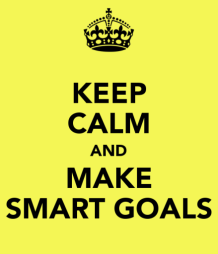As a fifth year Concurrent Education student, this is sadly my last blog post for the Centre for Student Success. It’s hard to believe that my third year as a Peer Mentor is coming to an end. As a final adios I have reflected on my time here and have compiled a list of the most important lessons that I have learned.
- Get Involved
It took me until my third year at Laurier Brantford to actually  get involved in something on campus (working at the Centre). Applying for this job was the best decision I made in my undergraduate career. The benefits of being part of a team and being involved on campus are endless. Working on campus has allowed for more opportunities to meet and have meaningful conversations with my peers and faculty. It has also made me feel more connected to the Laurier community.
get involved in something on campus (working at the Centre). Applying for this job was the best decision I made in my undergraduate career. The benefits of being part of a team and being involved on campus are endless. Working on campus has allowed for more opportunities to meet and have meaningful conversations with my peers and faculty. It has also made me feel more connected to the Laurier community.
For those of you who have not come in for an appointment or to attend a workshop I would advise you to absolutely do so. The staff at the Centre for Student Success includes some of the funniest and most caring individuals that I have met in my time at Laurier. They are the people I am going to miss the most when I have to leave campus as they have made my experiences and memories of Laurier ones that I do not want to forget.
- Access Available Resources
I have found that my own academic writing has improved immensely over the years. I credit this improvement to working at the Centre. I wish I had been more familiar with the services available to me as a student back in my first and second years. I am now much more confident with citation styles (APA, MLA, Chicago Author-Date), how to write an effective thesis statement, paragraph development, writing with an active voice, how to use a semicolon, and how to write all different types of assignments (research proposal, annotated bibliography, literature review, etc.).
These are all skills that students at Laurier Brantford can acquire by accessing resources. Through individual appointments, handouts, and workshops, students can learn and practise all of these skills to help improve their own writing. If you find that you are not getting the grades that you hope for, or if you lack confidence in your writing ability, you should participate at the Centre in one way or another.
- Reflect on your own Learning
Metacognition. It’s my first day of training, starting my third year as a student, and our manager Jenna Olender brings up this word. I was stumped. Simplified, metacognition is our thinking about thinking.
I now understand this concept to mean that we need to think about our own learning and engage in personal reflection. The same strategies – such as note taking or studying strategies– do not work well for all students. There is no universal method to being a successful student. This means that we all need to individually look at how we learn best.
think about our own learning and engage in personal reflection. The same strategies – such as note taking or studying strategies– do not work well for all students. There is no universal method to being a successful student. This means that we all need to individually look at how we learn best.
Prompting Questions to Engage in Metacognition:
– How do I study?
– Why does this strategy work for me? Why does it not?
– If this strategy didn’t produce the results I desired, how can I modify it and/or what other strategy can I try next time?
– What works best for me?
I like to think of this as trial and error. However, you don’t simply try, fail, and then give up. You have to take it the step further and think about why something didn’t work for you and critically engage in coming up with a new strategy for yourself. Once you figure out the strategies that work best for you, you don’t have to continue with trials. Find what works for you and then stick with it (modify as necessary). You will become a pro in strategies that WORK FOR YOU.
- Create Personal Goals
First year. Cramming for exams the day or two before. Trying to stuff as much knowledge into my tired brain as possible. Why didn’t this work?! I have become much more effective and efficient with my studying since then. This is largely due to taking the time to become organized and set goals before I even begin studying.
Weekly schedules with chunked out studying blocks and study goals has kept me on track with my studying. These study schedules ensure that I am not cramming the night before to compensate for spending too much time studying for one exam and forgetting about another one.
Creating small goals for yourself can keep you on track and motivate you to work hard to meet the standards and expectations you have set for yourself. Rather than simply putting on your schedule “Study for BF190,” be very specific about what you want to accomplish in that hour time slot. This will make studying seem less daunting and once you’ve completed your goal, you know that you deserve to reward yourself and take a break.
Example Goa ls:
ls:
-Read over lecture 1 and create study notes
-Create cue cards for chapters
1-3
-Make a practice test for the first half of the content-Take the practice test, mark it, and highlight which terms and concepts need further reviewing
Good luck with the rest of the term and have a great reading week!
Brittany
Peer Mentor
